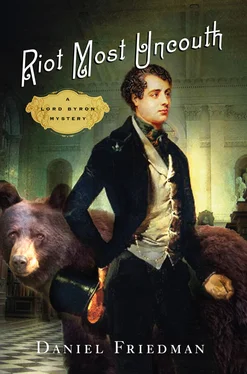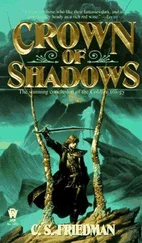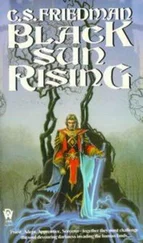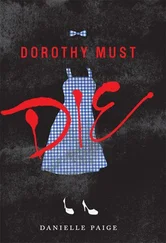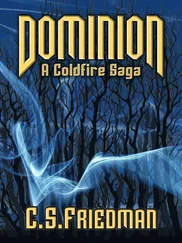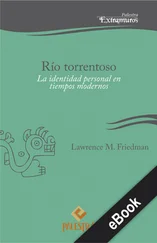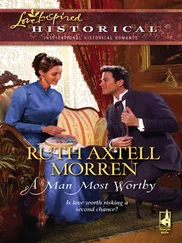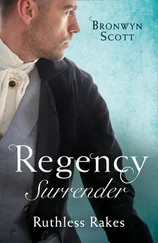Daniel Friedman - Riot Most Uncouth
Здесь есть возможность читать онлайн «Daniel Friedman - Riot Most Uncouth» весь текст электронной книги совершенно бесплатно (целиком полную версию без сокращений). В некоторых случаях можно слушать аудио, скачать через торрент в формате fb2 и присутствует краткое содержание. Год выпуска: 0101, ISBN: 0101, Издательство: St. Martin, Жанр: Исторический детектив, на английском языке. Описание произведения, (предисловие) а так же отзывы посетителей доступны на портале библиотеки ЛибКат.
- Название:Riot Most Uncouth
- Автор:
- Издательство:St. Martin
- Жанр:
- Год:0101
- ISBN:9781250027580
- Рейтинг книги:5 / 5. Голосов: 1
-
Избранное:Добавить в избранное
- Отзывы:
-
Ваша оценка:
- 100
- 1
- 2
- 3
- 4
- 5
Riot Most Uncouth: краткое содержание, описание и аннотация
Предлагаем к чтению аннотацию, описание, краткое содержание или предисловие (зависит от того, что написал сам автор книги «Riot Most Uncouth»). Если вы не нашли необходимую информацию о книге — напишите в комментариях, мы постараемся отыскать её.
Riot Most Uncouth — читать онлайн бесплатно полную книгу (весь текст) целиком
Ниже представлен текст книги, разбитый по страницам. Система сохранения места последней прочитанной страницы, позволяет с удобством читать онлайн бесплатно книгу «Riot Most Uncouth», без необходимости каждый раз заново искать на чём Вы остановились. Поставьте закладку, и сможете в любой момент перейти на страницу, на которой закончили чтение.
Интервал:
Закладка:
Seducing maidens is a fraught and challenging enterprise; they’re overly concerned with their marriage prospects. I was largely able to avoid becoming a target of anyone’s matrimonial designs, due to rumors about my financial circumstances and my well-earned reputation for promiscuity, but my endeavors were substantially harmed by the belief among girls that involvement with me diminished their chance to ensnare other desirable men. I had, thusly, begun to direct my seductive efforts toward married women; they had already realized whatever value their virtue might have had, and were free to engage in philandering, a favorite sport of England’s idle classes, second only to foxhunting.
I found Violet in her home, with only her children, which she locked in a back room upon my arrival. We stripped and fell into her bed, saving the conversation until our lust was spent.
“You taste strange,” she said, panting, as we lay tangled in the sheets.
“Perhaps it’s because I had food this afternoon. But I expect I taste mostly of wine and whisky; on miserable days like this, I must rely upon the nourishing and medicinal qualities of those edifying tonics.”
“I’m glad you’re eating again,” she said. “I was growing concerned for your health.”
I’d recently completed a three-week weight-loss regimen during which I had engaged in regular, violent exercise and subsisted on bread alone, with nothing to drink but brine and strong spirits. This diet caused frequent vomiting, but liberal allowances of laudanum dulled the pain and buoyed my mood. I’d come through it with a fashionable paleness of skin and I cut a rather svelte silhouette.
“I’m down to twelve stone, a loss of twenty-seven pounds in the last few months,” I said.
“Your bouts of asceticism seem to conflict with your hedonistic tendencies.”
“If the hedonist fails to care for his body, it will serve him but poorly in his future hedonistic endeavors.”
“Well, given your tendencies toward self-annihilation, I am pleased to hear that you’re considering the future at all. You’ve certainly been neglecting your studies. My husband said all the Fellows at the College have been gossiping about your meeting today with the senior faculty. Were you expelled?”
“Would I be here with you now if I had been?” I asked.
“I really don’t know,” she said. “It’s hard to discern, these days, why you do the things you do. I like to think I know you better than most, but lately, I find you opaque. Your behavior is not driven by motivations I can understand.”
“And yet, despite the inadequacies of your own faculties of reason, your utmost concern is my educational standing,” I said.
“I can’t tell if you’re trying to be clever, or if you’re evading the question.”
“No, Violet, I was not expelled. When one is possessed of my potent charm and noble birth, one gets a lot of second chances.”
“Not so many chances as you might think. The Fellows are concerned about you. Your manner has become steadily more erratic since Edleston left, and since those poor reviews came in for Hours of Idleness. ”
I swore so loudly that Violet recoiled a bit. I needed no reminder that my emergence into the pantheon of great Western poets had been met with less than universal acclaim. The Edinburgh Review, a periodical unfit for use as arse-wipe, had published a vicious attack upon my person disguised as a criticism of my poetry. They had dismissed my precocity by noting that it was unsurprising and unimpressive “that very poor verses were written by a youth,” and suggested that I “forthwith abandon poetry, and turn [my] talents … to better account.”
“My poetry has elevated me to literary celebrity, to immortality, despite the barbed quips and puerile protests of that syphilitic crowd of ewe-fuckers who call themselves the critical establishment,” I said. “They’ll get theirs soon enough; I’m working on an answer, a satire. I will eviscerate them.”
“Do you really think you should be talking about eviscerating people in light of recent local events?” she asked. Everyone in town had heard about the murder by now.
Instead of responding, I crossed my arms and sank into the pillows.
She reached for me and caressed my neck. “I worry about you. You’ve become so thin, and you appear frail and sickly to me sometimes.”
“And yet I find that few women complain.”
She sighed and rolled onto her back. Even with my carnal needs thoroughly sated, I couldn’t help staring at her breasts or, indeed, at any breasts available to be gazed upon at any time, ever. “It vexes me that I must share you with others,” she said.
“And, I suspect, if you asked your husband, he’d express similar sentiments.”
“You’re suddenly a moralist as well as an ascetic, Byron. I am not sure your charms benefit from your embrace of puritanical impulses.”
For some reason, I decided then to tell her about my visit to the women’s rooming house, and what I’d seen there. I told her about the smell of the ripening corpse, and about how the fingers of the girl’s bloodless hands had been slightly curled, on account of their tendons drying and tightening.
As I spoke, Violet drew herself up from her post-coital sprawl and gathered the sheets around her body.
“I’d always thought your preoccupation with the macabre was a hobby or some kind of affectation,” she said. “You drink your opiates and write your poems, and you collect those grotesque trinkets, and you traipse about in monk’s robes in that grand, ruined church you own. I’ve come to enjoy the way your postures become your identity. But you’re taking this too far. To walk into that room with that corpse is a choice I cannot comprehend. This is a family’s very real tragedy. It’s not a story for you to tell about yourself. Darling, I fear you are descending into madness.”
“Murderers ought to be punished for their crimes.”
“But they are punished routinely, all over Europe, without your participation. Why does this demand your involvement? What is at stake for you here?”
“How can you ask what is at stake?”
“I have heard that the body was drained of its blood. Is that what drew your interest? You can’t seriously believe that this crime is somehow connected to those vampires you’re always talking about?”
That was exactly what I believed, but I was ashamed to admit it. I said: “I believe a woman is dead and a killer is loose. I cannot tolerate the idea that something like this can happen arbitrarily and that it might not be set right. How can we believe anything has meaning in a world so disordered that fathers leave their sons and never return, and girls are slaughtered for whimsy and sick pleasure? How can anyone bear to witness such injustice?”
“That’s an interesting question to ask while you lie with a married woman in another man’s bed.”
“I commit no injustice; I’m merely a fornicator. You, however, are an adulteress.”
If she was piqued by the insult, she didn’t show it. Her voice remained even. “But our sins violate society’s order and flout its strictures, just as the murder does. And we sin arbitrarily, for no reason, and against an undeserving victim.”
“Who says your husband is undeserving? He made the mortal error of marrying you. I would not have.” I thought this was funny, but I suppose I should not have been surprised that she didn’t share my amusement.
“You like to hide behind your quips when your delicate vanity is wounded, and you try to use your humor to lighten the weight of the wrongs you commit,” she said. “But you know better, and so do I. My husband is quite affectionate. He adores me. He cares for his students and he dotes upon his children. He is a fine man. We commit acts that would surely harm him, were they discovered. Our conduct is in no way justified. And why do we do it? Fleeting pleasure. There’s no man alive better suited than you to carrying the banner for selfishness and indifference, for social disorder. I’d think you’d tear the world down to sate your own appetites.”
Читать дальшеИнтервал:
Закладка:
Похожие книги на «Riot Most Uncouth»
Представляем Вашему вниманию похожие книги на «Riot Most Uncouth» списком для выбора. Мы отобрали схожую по названию и смыслу литературу в надежде предоставить читателям больше вариантов отыскать новые, интересные, ещё непрочитанные произведения.
Обсуждение, отзывы о книге «Riot Most Uncouth» и просто собственные мнения читателей. Оставьте ваши комментарии, напишите, что Вы думаете о произведении, его смысле или главных героях. Укажите что конкретно понравилось, а что нет, и почему Вы так считаете.
